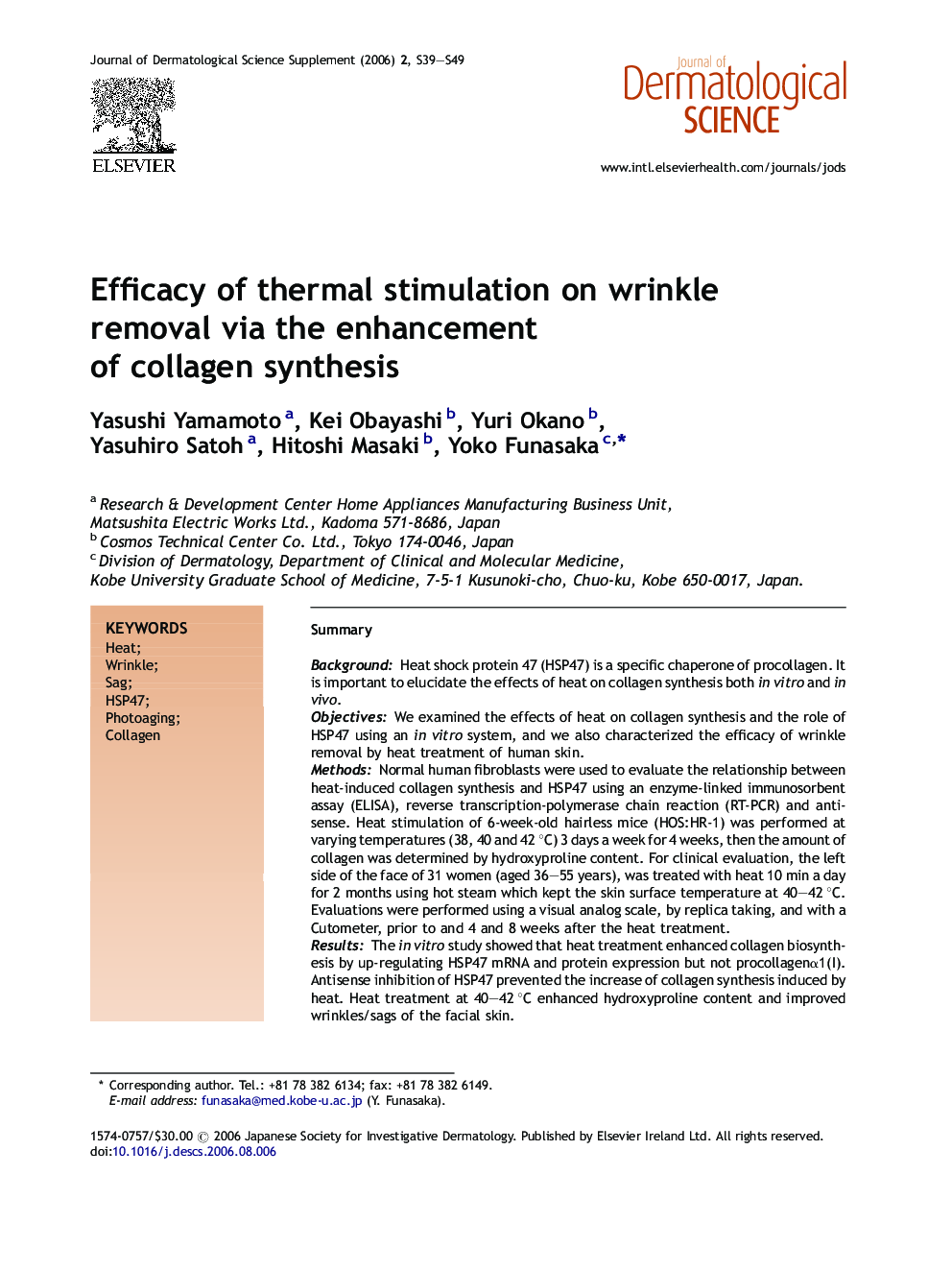| Article ID | Journal | Published Year | Pages | File Type |
|---|---|---|---|---|
| 3214653 | Journal of Dermatological Science Supplement | 2006 | 11 Pages |
SummaryBackgroundHeat shock protein 47 (HSP47) is a specific chaperone of procollagen. It is important to elucidate the effects of heat on collagen synthesis both in vitro and in vivo.ObjectivesWe examined the effects of heat on collagen synthesis and the role of HSP47 using an in vitro system, and we also characterized the efficacy of wrinkle removal by heat treatment of human skin.MethodsNormal human fibroblasts were used to evaluate the relationship between heat-induced collagen synthesis and HSP47 using an enzyme-linked immunosorbent assay (ELISA), reverse transcription-polymerase chain reaction (RT-PCR) and antisense. Heat stimulation of 6-week-old hairless mice (HOS:HR-1) was performed at varying temperatures (38, 40 and 42 °C) 3 days a week for 4 weeks, then the amount of collagen was determined by hydroxyproline content. For clinical evaluation, the left side of the face of 31 women (aged 36–55 years), was treated with heat 10 min a day for 2 months using hot steam which kept the skin surface temperature at 40–42 °C. Evaluations were performed using a visual analog scale, by replica taking, and with a Cutometer, prior to and 4 and 8 weeks after the heat treatment.ResultsThe in vitro study showed that heat treatment enhanced collagen biosynthesis by up-regulating HSP47 mRNA and protein expression but not procollagenα1(I). Antisense inhibition of HSP47 prevented the increase of collagen synthesis induced by heat. Heat treatment at 40–42 °C enhanced hydroxyproline content and improved wrinkles/sags of the facial skin.ConclusionsThese findings indicate that heat treatment at 40–42 °C has a beneficial therapeutic potential to repair wrinkles and sags in the skin through the up-regulation of collagen synthesis.
